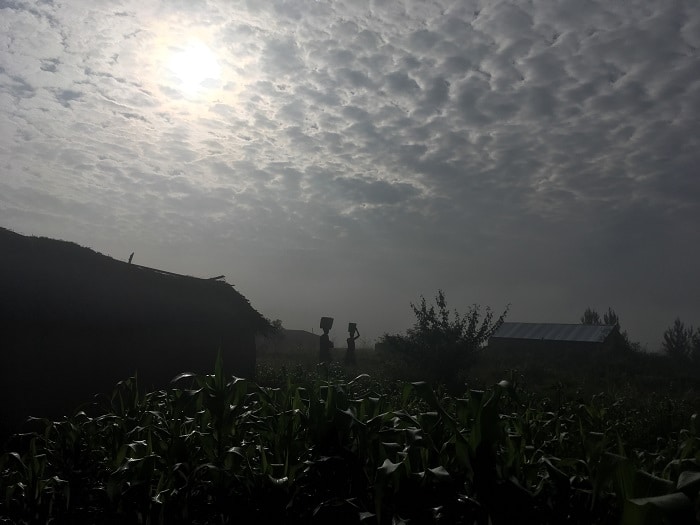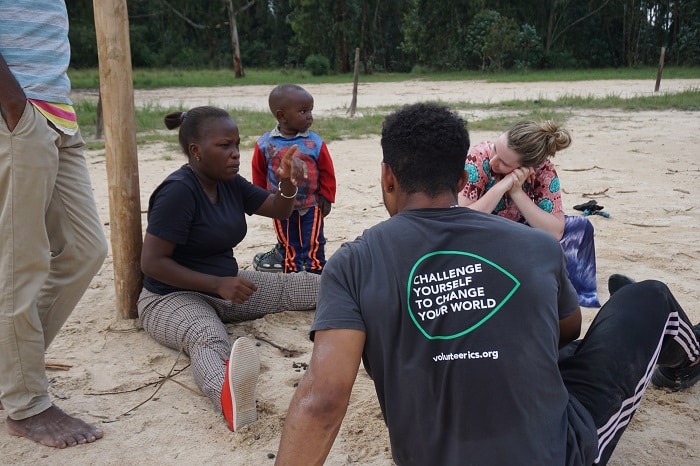Educating, encouraging and empowering entrepreneurs in rural Tanzania
The project has started by carrying out community mapping and conducting a series of surveys to identify the current situation, needs, and business structures. This is to ensure our programme is tailored as closely as possible to help the community achieve their goals.

From our market research it has been made clear that the population here is ageing. The youth have little interest in continuing farming labours their parents have carried out for so many years. It seems the lights of bigger towns are attracting many people away, which is unsustainable for rural villages.
As an incentive to try and counteract this Raleigh is offering a course which results in a free qualification in business to all members of the community.
This entrepreneurship course will be run Monday-Friday at times that work alongside the community’s agricultural necessities. After only a few days here over 80 people have signed up so it’s safe to say there is quite a bit of interest already! Conducting an international games fair on 10th March will hopefully take this figure even higher and incorporate even more of the community. The qualification offered will give the entrepreneurs the basic knowledge of setting up a small enterprise, with a focus on gaining an understanding of the importance of market research, cashflows and business models.
Raleigh works very closely with East African Dairy Development
East African Dairy Development (EADD) are one of our livelihoods project partners. They can offer further and more specific training on all things dairy. This can be in feed, breeding and/or maximising production, as well as guaranteeing sales for farmers by linking them with suppliers. This creates a sustainable future for these projects, meaning EADD therefore acts as a key partner for Raleigh’s livelihoods programme.
For entrepreneurs aged between 18—35, a major part of the programme will be the possibility of acquiring a Raleigh grant to get their businesses up and running.
Any business we are unable to fund we endeavour to secure alternative funding for, e.g. from the Tanzanian government to ensure as many people are given the resources they need. In the previous cycle Raleigh volunteers managed to secure as much funding for the entrepreneurs from alternative finance as we gave out in grants. This was done by helping groups create their own constitutions and open their own bank accounts. We are aiming to do this with a reformed women’s group here in Udumuka, which was forced to fold two years ago after it was given no support.

With regards development matters it seems that women are marginalised the most
As a result, we aim to empower women to have a sustainable, independent income rather than depend on their husbands.
However, our work won’t stop there. We will be setting up a weekly business club for school children in standards 6 and 7 with the hope of inspiring the next generation. To this end, we will also be setting up a mentor scheme to allow experienced business owners to offer their support to newer entrepreneurs even after we have left.
Volunteer Sam Thomas who is currently based in Udumuka says,
“I can’t wait to see the development of our new home and the impact the program will have not only on the community but also on us as volunteers.”
Words by Alastair Browning, Mbwana Kiwera and Sam Thomas. Images by Libby Down and Alastair Browning.
Keep up to date with the Tanzania spring ICS programme by following this blog, Facebook and Instagram.



